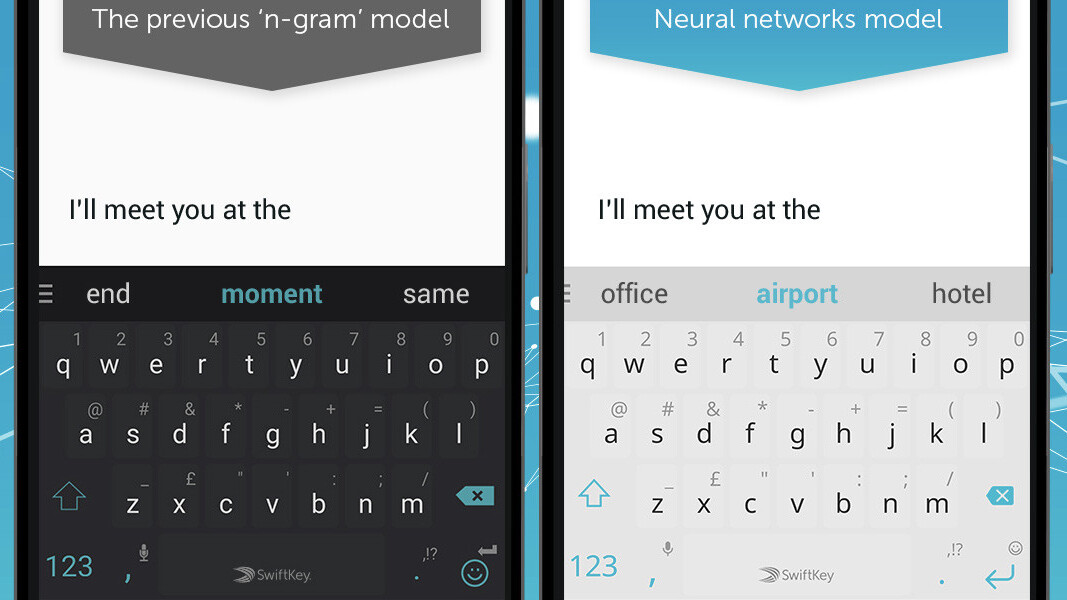SwiftKey has rebuilt its keyboard app for Android from the ground up to improve predictions.
The app – which Microsoft acquired in February – previously relied on an n-gram model, which surfaced predictions based on the last two words you’ve typed, as well as the words and phrases you’ve trained it with.
As a result, it’d sometimes offer up useless predictions like ‘Let’s meet at the moment.’ The new neural network model looks at more words in your input, compare them and understand the relationships between them to produce more meaningful predictions, like ‘Let’s meet at the office / airport / hotel.’
To achieve this, SwiftKey has trained its app with millions of sentences. According to SwiftKey, this approach allows its keyboard to predict phrases that it has never encountered before in its training.
The company has been working on this for a while now. Last October, it released an experimental app built on this neural network model for users to test.
The updated app is now available on Google Play; SwiftKey is first rolling out neural networks in its US English and UK English language models and will subsequently add more languages.
However, I noticed no changes after installing the update and trying it on multiple devices. According to SwiftKey, that might be because the words and phrases the app has learned from my usage is drowning out the neural network predictions:
In very simple terms SwiftKey is a big language probability engine, so if you have typed something before then it’s far more probable that you’ll write the same thing again.
Tim Lovell, senior product marketing manager for SwiftKey also explained that it might be a while before the neural network model is introduced in the iOS version of the keyboard app:
Regarding iOS, it is a very different platform to develop for with some unique challenges, for example the amount of memory made available to third party keyboards. Neural Networks is a technology we believe is going to set the foundation for many of the improvements in prediction and correction accuracy for years to come, so it is certainly something we would like to make available to as many of our users as possible.
Get the TNW newsletter
Get the most important tech news in your inbox each week.






